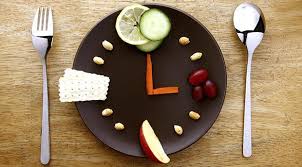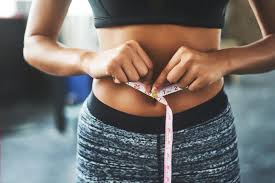Choose a low-carb diet

If you want to lose weight, consider starting by avoiding sugar and starch (like bread, pasta and potatoes). This is an old idea: for 150 years or more there have been a huge number of weight-loss diets based on eating fewer carbs. What’s new is that dozens of modern scientific studies have proven that, yes, on average low carb can be the most effective way to lose weight.
Obviously, it’s still possible to lose weight on any diet – just eat fewer calories than you burn, right? The problem with this simplistic advice is that it ignores the elephant in the room: hunger. Most people don’t like to “just eat less,” as it may result in having to go hungry forever. Sooner or later, many will likely give up and eat, hence the prevalence of “yo-yo dieting.” While it should be possible to lose weight on any diet, some appear to make it easier and some to make it much harder.
The main advantage of the low-carb diet is that it may cause you to want to eat less. Even without counting calories, overweight people tend to eat fewer calories on low carb.
Sugar and starch may increase your hunger, while avoiding them may decrease your appetite to a more manageable level. If your body wants to have an appropriate number of calories, you don’t need to bother counting them. Thus, calories count, but you don’t need to count them.
Limit unnecessary snacking

Unnecessary snacking can be a problem on a keto diet too. Some things are easy to eat just because they’re tasty and readily available. Here are three common traps to watch out for on a keto or low-carb diet:22
- Dairy products such as cream and cheeses. They work well in cooking, as they satisfy. But problems arise when you’re munching a lot of cheese in front of the TV in the evening — without being hungry. Be careful with that. Another problem might be having lots of cream with dessert, when you’re actually already full and just keep eating because it tastes good. Another common culprit is loads of heavy cream in the coffee, many times per day.
- Nuts. It’s very easy to eat until the nuts are gone, regardless of how full you are. A tip: According to science, salted nuts are harder to stop eating than unsalted nuts.23 Salted nuts tempt you to more overeating. Good to know. Another tip: Avoid bringing the entire bag to the couch, preferably choose a small bowl instead. Personally, I often eat all the nuts in front of me, whether I’m hungry or not.
- Low-carb baking. Even if you’re only using almond flour and sweeteners, snacking on baked goods and cookies usually provides additional eating when you’re not hungry — and yes, this will slow down weight loss.
Feel free to skip meals

Do you have to eat breakfast? Research has confirmed that the answer is no.24 Don’t eat if you’re not hungry. And this goes for any meal.
On a strict keto diet the hunger and urge to eat tend to decrease a lot, especially if you have excess weight to lose.25 Your body may be happily burning your fat stores, reducing the need to eat.
If this happens, be happy! Don’t fight it by eating food you don’t want. Instead, wait for the hunger to return before you eat again. This will save you both time and money, while speeding up your weight loss.
Some people fear that they will lose control if they don’t eat every three hours. The concern that this “urge to binge” will blow their diets completely leads them to obsessively snack all the time.
This constant snacking may be necessary in order to control the hunger and craving that may arise during a diet high in sugar and starchy carbs, but it’s usually unnecessary on a keto diet. Hunger will only slowly return and you should have plenty of time to prepare food or grab a snack.
Drink more water

You might think that drinking a lot of water is gonna make you feel bloated and full, but it’s actually the opposite, says Leonard. If you aim for the recommended eight glasses a day, it helps the body flush out toxins more quickly.
On the flip side, if you don’t drink enough water throughout the day, your body will release an antidiuretic hormone that leads to water retention and could cause temporary weight gain, Dr. Seltzer says. But if this happens to you once or twice, don’t freak. It happens to everyone from time to time, and it’s not going to cancel out the lifestyle changes you’ve been making.
Cut back on alcohol

You know how some people say alcohol is empty calories? That’s because it contains 7 calories per gram without filling you up or delivering essential nutrients. In other words, it doesn’t do much for your body—besides making you feel tipsy.
In other words, it doesn’t do much for your body—besides making you feel tipsy. And since it chips away at your inhibitions, “drinking makes you more likely to eat foods that are unfavorable for weight loss.
If you’re trying to maximize your weight loss in a shorter period of time, it’s recommended cutting out alcohol entirely. It causes inflammation which can make your body retain water and throw off the number on the scale, she explains.
After eliminating or drastically reducing the alcohol in your diet for a couple of weeks, see how you feel. The experience could make you think about changing up your drinking habits if you notice an improvement in your quality of life with less imbibing.
Avoid stress eating

“Anytime you’re stressed, you probably go for food,” Dr. Seltzer says. It’s a totally natural thing to do. Cortisol, the stress hormone, stokes your appetite for sugary, fatty foods. So if you really want to lose weight, try to be mindful about when you might be eating because of stress—not hunger.
It can be really hard to stop yourself from stress eating in the moment, so Leonard recommends writing down a list of some things you can do instead. It might include taking some slow, intentional deep breaths, going for a walk, or calling a friend. Then the next time you feel a stress-fueled craving coming on, you can refer back to it and try one of those alternatives first, she says.
Exercise

Let’s get one thing straight: Exercise can’t help you lose weight in a week. “People who do low-intensity exercise might burn calories, but they often end up eating more or subconsciously moving less throughout the day to conserve energy,” Dr. Seltzer explains—and research supports the theory.
That said, exercise—especially at a moderate level—can help you lose weight over a longer period of time. Moderate exercise, like brisk walking or yoga, has been shown to help with managing appetite, says Leonard. She recommends doing some type of moderate physical activity for 30-45 minutes a few times a week. But most importantly, exercise is great for your heart, mental health, and overall wellbeing. It goes way beyond whatever your weight happens to be.
